Principal Investigators
This MURI grant makes possible the multidisciplinary collaboration of an extraordinary team of researchers. The team spans two continents and brings together some of the pre-eminent experts in neuroscience, with emphasis on localization, mapping, and navigation functions, with experts in robotics, computer vision, control systems, and algorithms.
The U.S. team includes faculty from Boston University and MIT, and is led by Yannis Paschalidis, director of the Center for Information and Systems Engineering, and professor in the College of Engineering at Boston University. Principle investigators include BU College of Engineering Professors John Baillieul, Yannis Paschalidis, and Roberto Tron; Neuroscience Professors Michael Hasselmo and Chantal Stern of the College of Arts and Sciences; and Computer Science Professor Margrit Betke. Researchers from MIT CSAIL include John Leonard, Samuel C. Collins Professor of Mechanical and Ocean Engineering, and Nicholas Roy, Bisplinghoff Professor of Aeronautics and Astronautics.
The Australian team includes faculty from five Australian-based universities and is led by Professor Girish Nair at the University of Melbourne. Principal investigators include Professors Anthony Burkitt, William Moran, Girish Nair, and Iman Shames of University of Melbourne; Professor Ken Cheng of Macquarie University; Professor Michael Milford of Queensland University of Technology; and Professor Andrey Savkin of University of New South Wales.
U.S. Research Team
 Ioannis (Yannis) Paschalidis, Boston University, serves as the Principal Investigator of the project. Paschalidis is an expert in systems and control, machine learning, networks, optimization, computational biology and neuroscience, and medical informatics. He has published over 185 refereed papers, has delivered 133 invited talks, and advised 22 PhD theses. He has been a PI/Co-PI for more than $37 million in sponsored projects. He has received an NSF CAREER award, several best-paper awards, and an IBM/IEEE Smarter Planet Challenge Award. He was an invited participant to a Frontiers of Engineering Symposium and a Keck Futures Initiative Symposium, both organized by the National Academy of Engineering. He has been a Co-PI in three MURIs, including the ONR AIRFOILS MURI. He is a member of the BoG of the IEEE Control Systems Society, and an Alternate Director of the American Automatic Control Council. He is a Fellow of the IEEE and the founding Editor-in-Chief of the IEEE Transactions on Control of Network Systems. At BU, he is a Professor of Electrical and Computer Engineering, Systems Engineering, and Biomedical Engineering in the College of Engineering at Boston University. He is also a data science faculty fellow, and directs the Center for Information & Systems Engineering.
Ioannis (Yannis) Paschalidis, Boston University, serves as the Principal Investigator of the project. Paschalidis is an expert in systems and control, machine learning, networks, optimization, computational biology and neuroscience, and medical informatics. He has published over 185 refereed papers, has delivered 133 invited talks, and advised 22 PhD theses. He has been a PI/Co-PI for more than $37 million in sponsored projects. He has received an NSF CAREER award, several best-paper awards, and an IBM/IEEE Smarter Planet Challenge Award. He was an invited participant to a Frontiers of Engineering Symposium and a Keck Futures Initiative Symposium, both organized by the National Academy of Engineering. He has been a Co-PI in three MURIs, including the ONR AIRFOILS MURI. He is a member of the BoG of the IEEE Control Systems Society, and an Alternate Director of the American Automatic Control Council. He is a Fellow of the IEEE and the founding Editor-in-Chief of the IEEE Transactions on Control of Network Systems. At BU, he is a Professor of Electrical and Computer Engineering, Systems Engineering, and Biomedical Engineering in the College of Engineering at Boston University. He is also a data science faculty fellow, and directs the Center for Information & Systems Engineering.
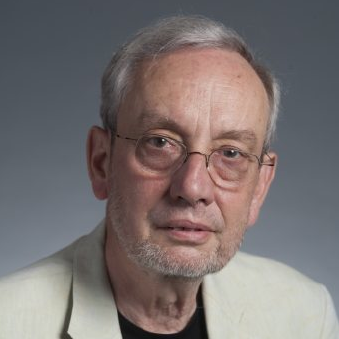 John Baillieul, Boston University, is an expert in robotics, the control of mechanical systems, and mathematical system theory. Over the past decade, he has focused on information-based control and neuro-inspired perception-based control. He has served as PI on two DoD MURI projects and was the BU PI of the ONR AIRFOILS MURI. He has had uninterrupted funding from DoD for the past 35 years. He is a Distinguished Professor of Engineering at BU, and a Fellow of the IEEE, of the International Federation of Automatic Control and of the Society for Industrial and Applied Mathematics.
John Baillieul, Boston University, is an expert in robotics, the control of mechanical systems, and mathematical system theory. Over the past decade, he has focused on information-based control and neuro-inspired perception-based control. He has served as PI on two DoD MURI projects and was the BU PI of the ONR AIRFOILS MURI. He has had uninterrupted funding from DoD for the past 35 years. He is a Distinguished Professor of Engineering at BU, and a Fellow of the IEEE, of the International Federation of Automatic Control and of the Society for Industrial and Applied Mathematics.
 Margrit Betke, Boston University, is an expert in computer vision, in particular, the development of methods for detection, recognition, segmentation, registration, and tracking of objects. She has published more than 145 refereed papers. She led a $2.8 million NSF research project to develop intelligent tracking systems that reason about group behavior of people, bats, birds, and cells. She is a Professor of Computer Science and an Affiliate Professor of Electrical and Computer Engineering and Biomedical Engineering in the Boston University. She is also a BU data science fellow, Co-Director of the AI Research (AIR) Initiative at BU, and the Area Chair of the IEEE Conference of Computer Vision & Pattern Recognition (CVPR).
Margrit Betke, Boston University, is an expert in computer vision, in particular, the development of methods for detection, recognition, segmentation, registration, and tracking of objects. She has published more than 145 refereed papers. She led a $2.8 million NSF research project to develop intelligent tracking systems that reason about group behavior of people, bats, birds, and cells. She is a Professor of Computer Science and an Affiliate Professor of Electrical and Computer Engineering and Biomedical Engineering in the Boston University. She is also a BU data science fellow, Co-Director of the AI Research (AIR) Initiative at BU, and the Area Chair of the IEEE Conference of Computer Vision & Pattern Recognition (CVPR).
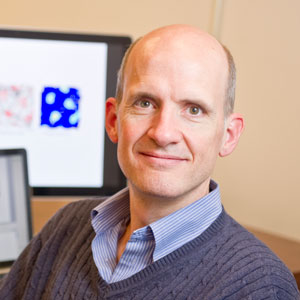 Michael Hasselmo, Boston University, is an expert on the physiological mechanisms of spatial navigation and memory function in the entorhinal cortex and hippocampus. He has published 201 journal articles. He has been the PI on multiple NIH R01 grants, two ONR MURI awards, and several large NSF grants. He received an ONR Young Investigator Award. He is a member of the American Academy of Arts and Sciences and a fellow of the American Association for the Advancement of Science. He received the Hebb Award recognizing achievement in biological learning from the International Neural Network Society. He served as chair of the NIH Neurobiology of Learning and Memory Study Section. He was elected as President of the International Neural Network Society in 2003. He received the American Psychological Association Marquis Award for best paper in Behavioral Neuroscience. He is on the editorial boards of the journals Science, Hippocampus, Behavioral Neuroscience Neurobiology of Learning and Memory, and Neuroinformatics. At BU, he is a Professor of Psychological and Brain Sciences and directs the Center for Systems Neuroscience.
Michael Hasselmo, Boston University, is an expert on the physiological mechanisms of spatial navigation and memory function in the entorhinal cortex and hippocampus. He has published 201 journal articles. He has been the PI on multiple NIH R01 grants, two ONR MURI awards, and several large NSF grants. He received an ONR Young Investigator Award. He is a member of the American Academy of Arts and Sciences and a fellow of the American Association for the Advancement of Science. He received the Hebb Award recognizing achievement in biological learning from the International Neural Network Society. He served as chair of the NIH Neurobiology of Learning and Memory Study Section. He was elected as President of the International Neural Network Society in 2003. He received the American Psychological Association Marquis Award for best paper in Behavioral Neuroscience. He is on the editorial boards of the journals Science, Hippocampus, Behavioral Neuroscience Neurobiology of Learning and Memory, and Neuroinformatics. At BU, he is a Professor of Psychological and Brain Sciences and directs the Center for Systems Neuroscience.
 John Leonard, MIT, is an expert in navigation and mapping for autonomous robots, developing techniques to handle uncertainty in sensing and actuation. He was team leader for MIT’s DARPA Urban Challenge team, which was one of eleven teams to qualify for the Urban Challenge final event and one of six teams to complete the race. He is the recipient of an NSF CAREER Award, an E.T.S. Walton Visitor Award from the Science Foundation Ireland, and several best paper awards. He is the Samuel C. Collins Professor of Mechanical and Ocean Engineering at MIT and an IEEE Fellow.
John Leonard, MIT, is an expert in navigation and mapping for autonomous robots, developing techniques to handle uncertainty in sensing and actuation. He was team leader for MIT’s DARPA Urban Challenge team, which was one of eleven teams to qualify for the Urban Challenge final event and one of six teams to complete the race. He is the recipient of an NSF CAREER Award, an E.T.S. Walton Visitor Award from the Science Foundation Ireland, and several best paper awards. He is the Samuel C. Collins Professor of Mechanical and Ocean Engineering at MIT and an IEEE Fellow.
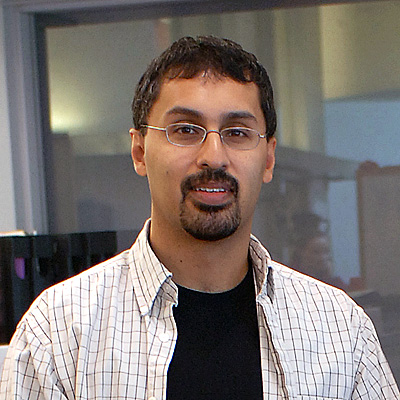 Nicholas Roy, MIT, is an expert in decision-making under uncertainty applied to UAVs, mobile robots and human-robot interaction. He works in motion planning with imperfect sensing in GPS-denied environments, mapping and exploration, and on how robots can learn to interact with people. His work has been recognized with an NSF CAREER award, an IEEE Robotics and Automation Society Early Career Award, and best paper prizes at ICRA, RSS, ICMI and ICAPS. He founded and led Google [X]’s Project Wing from 2012-2014. He is the Bisplinghoff Professor of Aeronautics and Astronautics at MIT, and the Director of the Bridge as part of the MIT Quest for Intelligence.
Nicholas Roy, MIT, is an expert in decision-making under uncertainty applied to UAVs, mobile robots and human-robot interaction. He works in motion planning with imperfect sensing in GPS-denied environments, mapping and exploration, and on how robots can learn to interact with people. His work has been recognized with an NSF CAREER award, an IEEE Robotics and Automation Society Early Career Award, and best paper prizes at ICRA, RSS, ICMI and ICAPS. He founded and led Google [X]’s Project Wing from 2012-2014. He is the Bisplinghoff Professor of Aeronautics and Astronautics at MIT, and the Director of the Bridge as part of the MIT Quest for Intelligence.
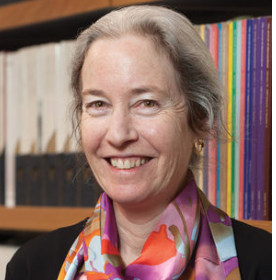 Chantal Stern, Boston University, is an expert on spatial navigation in humans using functional MRI. She has worked closely with rodent and non-human primate investigators, computational modelers, and robotics researchers. She has served as a Co-I and project leader on two ONR MURI grants and is the PI on a related DURIP. Her awards include a McDonnell-Pew Program in Cognitive Neuroscience Fellowship and a Mark Hatfield Award for Alzheimer’s Disease Research. At BU, she is a Professor of Psychological and Brain Sciences and the Director of the Cognitive Neuroimaging Center.
Chantal Stern, Boston University, is an expert on spatial navigation in humans using functional MRI. She has worked closely with rodent and non-human primate investigators, computational modelers, and robotics researchers. She has served as a Co-I and project leader on two ONR MURI grants and is the PI on a related DURIP. Her awards include a McDonnell-Pew Program in Cognitive Neuroscience Fellowship and a Mark Hatfield Award for Alzheimer’s Disease Research. At BU, she is a Professor of Psychological and Brain Sciences and the Director of the Cognitive Neuroimaging Center.
 Roberto Tron, Boston University, has expertise in the intersection of automatic control, robotics and computer vision, with an emphasis in applications of Riemannian geometry and in distributed problems involving teams of multiple agents. He has received an IEEE CDC Interactive Presentation Recognition Award and the best student paper award. At BU, he is an Assistant Professor of Mechanical & Systems Engineering.
Roberto Tron, Boston University, has expertise in the intersection of automatic control, robotics and computer vision, with an emphasis in applications of Riemannian geometry and in distributed problems involving teams of multiple agents. He has received an IEEE CDC Interactive Presentation Recognition Award and the best student paper award. At BU, he is an Assistant Professor of Mechanical & Systems Engineering.
Australian Research Team
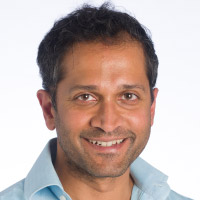 Girish Nair, University of Melbourne, serves as the Principal Investigator of the Australia-based collaborative team. Gair pursues research on the fundamental relationship between control and information in dynamical systems. He has made significant contributions in data rate-limited feedback systems, and in information concepts for estimation and control. He has received Outstanding Paper Prizes from SIAM, IEEE (Axelby), and a Future Fellowship from the ARC. He has given plenary/keynote addresses at several conferences. He has received continuous funding as a PI and co-PI from the ARC since 2002. He is a Fellow of the IEEE and Professor of Electrical & Electronic Eng. at UM.
Girish Nair, University of Melbourne, serves as the Principal Investigator of the Australia-based collaborative team. Gair pursues research on the fundamental relationship between control and information in dynamical systems. He has made significant contributions in data rate-limited feedback systems, and in information concepts for estimation and control. He has received Outstanding Paper Prizes from SIAM, IEEE (Axelby), and a Future Fellowship from the ARC. He has given plenary/keynote addresses at several conferences. He has received continuous funding as a PI and co-PI from the ARC since 2002. He is a Fellow of the IEEE and Professor of Electrical & Electronic Eng. at UM.
 Anthony Burkitt, University of Melbourne, is an expert in computational neuroscience and neuro-engineering. He has published over 104 journal papers and has been the PI for more that $52.2 M, and a Co-PI for more than $10 M in sponsored projects. He was the Director of Bionic Vision Australia (2010-2016), securing $50 million in Australian Research Council (ARC) funding that led to the development of a prototype bionic eye and the establishment of the company Bionic Vision Technologies (BVT) with US$18M of venture capital. He has been Program Committee Chair for the annual Computational Neuroscience conference, 2015-2017. He holds the Chair in Bio-Signals and Bio-Systems in the Dept. of Biomedical Engineering at UM.
Anthony Burkitt, University of Melbourne, is an expert in computational neuroscience and neuro-engineering. He has published over 104 journal papers and has been the PI for more that $52.2 M, and a Co-PI for more than $10 M in sponsored projects. He was the Director of Bionic Vision Australia (2010-2016), securing $50 million in Australian Research Council (ARC) funding that led to the development of a prototype bionic eye and the establishment of the company Bionic Vision Technologies (BVT) with US$18M of venture capital. He has been Program Committee Chair for the annual Computational Neuroscience conference, 2015-2017. He holds the Chair in Bio-Signals and Bio-Systems in the Dept. of Biomedical Engineering at UM.
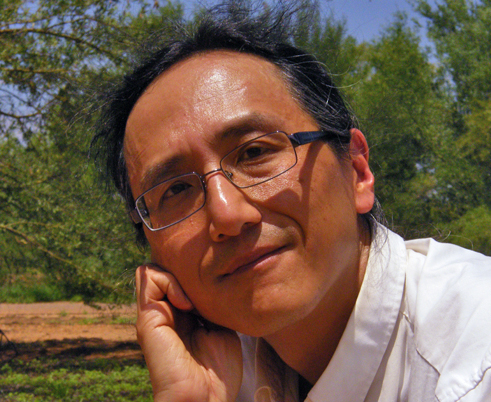 Ken Cheng, Macquarie University, is an expert on cognition and learning in animals, especially navigation. He has published 2 textbooks, 130 refereed journal papers, and 21 book chapters. He has been funded by NATO, the Natural Sciences and Eng. Research Council of Canada, the ARC, and the NIH (US). He is a Fellow of the Association for Psychological Science and Professor of Biological Sciences at MU.
Ken Cheng, Macquarie University, is an expert on cognition and learning in animals, especially navigation. He has published 2 textbooks, 130 refereed journal papers, and 21 book chapters. He has been funded by NATO, the Natural Sciences and Eng. Research Council of Canada, the ARC, and the NIH (US). He is a Fellow of the Association for Psychological Science and Professor of Biological Sciences at MU.
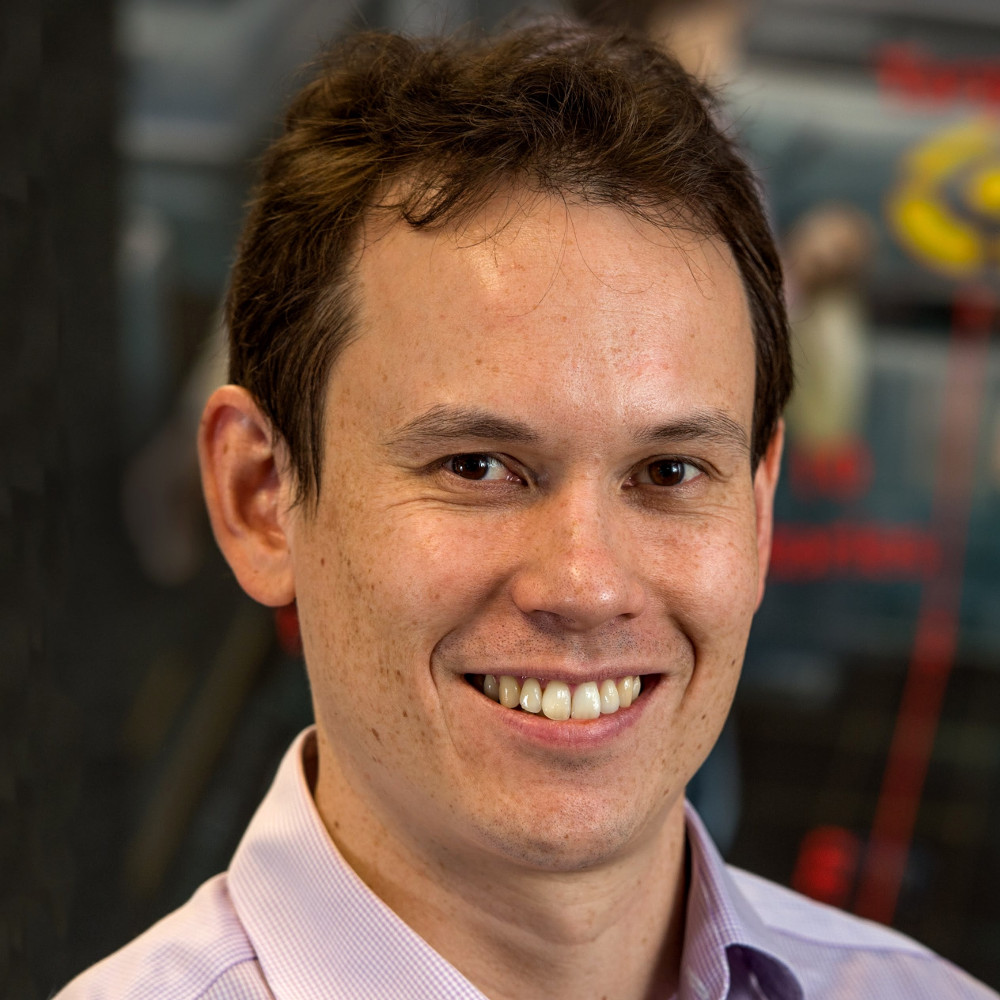
Michael Milford, Queensland University of Technology, works at the interface of robotics, neuroscience, machine learning and computer vision. His research models the neural mechanisms in the brain underlying tasks like navigation and perception to develop new technologies in challenging application domains such as all-weather, anytime positioning for autonomous vehicles. His papers have won (6) or been finalists (9) for 15 best paper awards, and he has been a PI/Co-PI for more than $38M AUD in grants, collaborating with many top companies and universities globally. He is a Professor at QUT, as well as ARC Future Fellow, Microsoft Research Faculty Fellow and Chief Investigator at the Australian Centre for Robotic Vision.
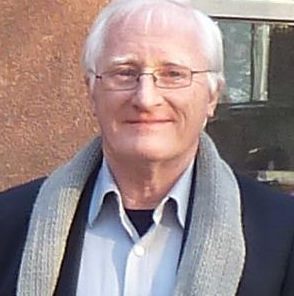 William Moran, University of Melbourne, is an expert in signal processing and sensor management, with applications to sensor networks, optimization, and active sensing. He has published more than 340 refereed papers. He has been a PI on numerous sponsored projects, from both Australian and US sources, including DARPA, AFOSR, AFRL, and ARC. He has been a PI and co-PI on two AFOSR MURIs, four DARPA projects and several AFOSR/AFRL projects. He has been a member of the ARC’s College of Experts and the Director of the Defense Science Institute at UM. He is a Fellow of the Australian Academy of Science. He is currently a Professor of Electrical & Electronic Eng. at UM.
William Moran, University of Melbourne, is an expert in signal processing and sensor management, with applications to sensor networks, optimization, and active sensing. He has published more than 340 refereed papers. He has been a PI on numerous sponsored projects, from both Australian and US sources, including DARPA, AFOSR, AFRL, and ARC. He has been a PI and co-PI on two AFOSR MURIs, four DARPA projects and several AFOSR/AFRL projects. He has been a member of the ARC’s College of Experts and the Director of the Defense Science Institute at UM. He is a Fellow of the Australian Academy of Science. He is currently a Professor of Electrical & Electronic Eng. at UM.
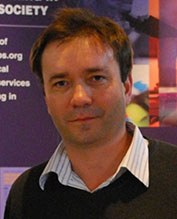 Andrey Savkin, University of New South Wales. Professor Savkin’s research has focused on biologically inspired robot navigation, localization, networked control systems, control of biomedical systems, and sensor networks. He has authored/co-authored 7 books and over 200 journal papers. He has received continuous funding from the ARC since 1997. He is a Professor of Electrical Eng. & Telecommunications at the UNSW.
Andrey Savkin, University of New South Wales. Professor Savkin’s research has focused on biologically inspired robot navigation, localization, networked control systems, control of biomedical systems, and sensor networks. He has authored/co-authored 7 books and over 200 journal papers. He has received continuous funding from the ARC since 1997. He is a Professor of Electrical Eng. & Telecommunications at the UNSW.
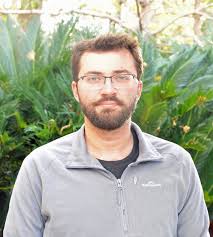 Iman Shames, Australian National University. Professor Shame’s research includes optimization and cyber-physical systems. He has published more than 100 refereed papers. He has been a PI/Co-PI for more than $2M in grants, including defense contracts on SLAM, motion planning and multimodal sensor control. He is currently Professor of Mechatronics Engineering at the School of Engineering at the Australian National University.
Iman Shames, Australian National University. Professor Shame’s research includes optimization and cyber-physical systems. He has published more than 100 refereed papers. He has been a PI/Co-PI for more than $2M in grants, including defense contracts on SLAM, motion planning and multimodal sensor control. He is currently Professor of Mechatronics Engineering at the School of Engineering at the Australian National University.